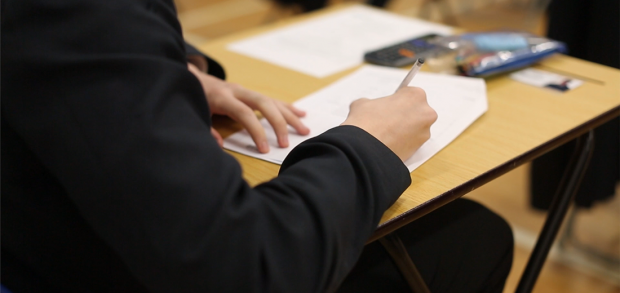Nine years of GCSE grades 9 to 1

As we close in on the ninth summer of awarding GCSE grades 9 to 1, we can say they aren’t quite so ‘new’ any more. And yet we still see thousands of visits every month to our explainers on the …

As we close in on the ninth summer of awarding GCSE grades 9 to 1, we can say they aren’t quite so ‘new’ any more. And yet we still see thousands of visits every month to our explainers on the …

Students who took GCSE English language and maths in England in the November exam series will be receiving their results today (9 January 2025). GCSE English language and maths are available every November, and entry is restricted to students aged …

On Thursday (22 August), students will receive results for GCSEs and level 1/level 2 vocational and technical qualifications (VTQs). Students should be proud of their achievements as they receive their results. The qualifications they have gained provide trustworthy evidence of …

Thursday 15 August is results day for AS, A level, T Levels and a range of vocational and technical qualifications (VTQs) taken in subjects such as engineering and health and social care. Marking and grading have taken place as normal …

Very soon more than 7 million results will be issued to students in England, including over 800,000 results for vocational and technical qualifications. Here are some important things to know about marking, grading and results. When are 2024 results days? …

Growing sense of anticipation as students start the final push to exams and assessments As the long-anticipated and eagerly-awaited break for the Easter holidays arrives, the thoughts of students up and down the country will be turning to their summer …

School and college qualifications are important, whether GCSEs, A levels, Applied Generals or other vocational and technical qualifications. It is no surprise, then, that teachers and parents spend a lot of time talking to young people about the importance of …

On Thursday, more than half a million students will receive results for GCSEs and Level 1 and Level 2 vocational and technical qualifications (VTQs). These students, and their teachers, have shown remarkable resilience over the past two years. To recognise …

On Thursday, over a quarter of a million students will get results for AS and A levels, new T Levels, and a range of level 3 vocational and technical qualifications (VTQs). This is the first summer exam series since 2019 …

As the deadline approaches for making GCSE entries, we know that schools and colleges will be thinking carefully about the appropriate tier of entry for their students in those subjects that are tiered – maths and statistics, the science suite …